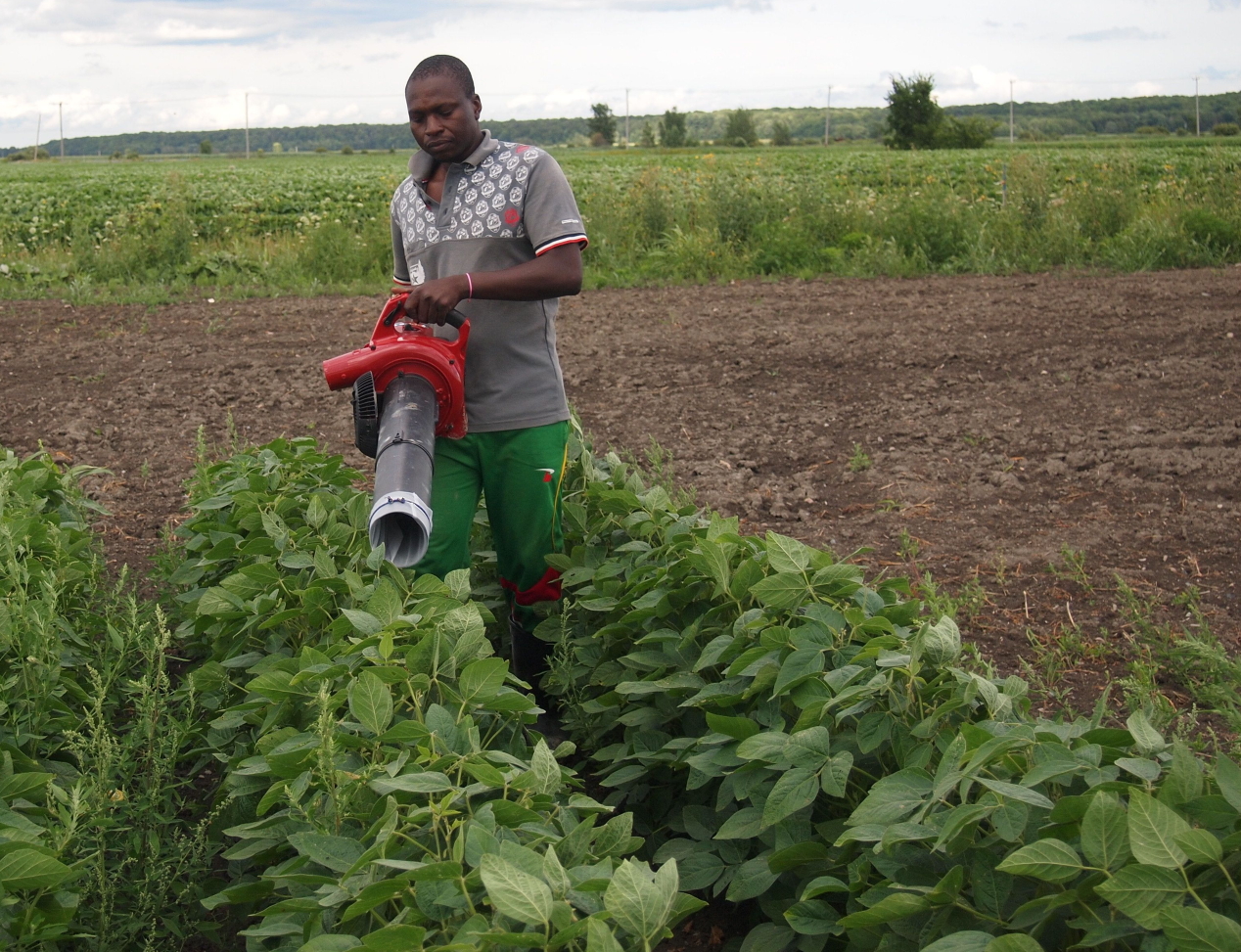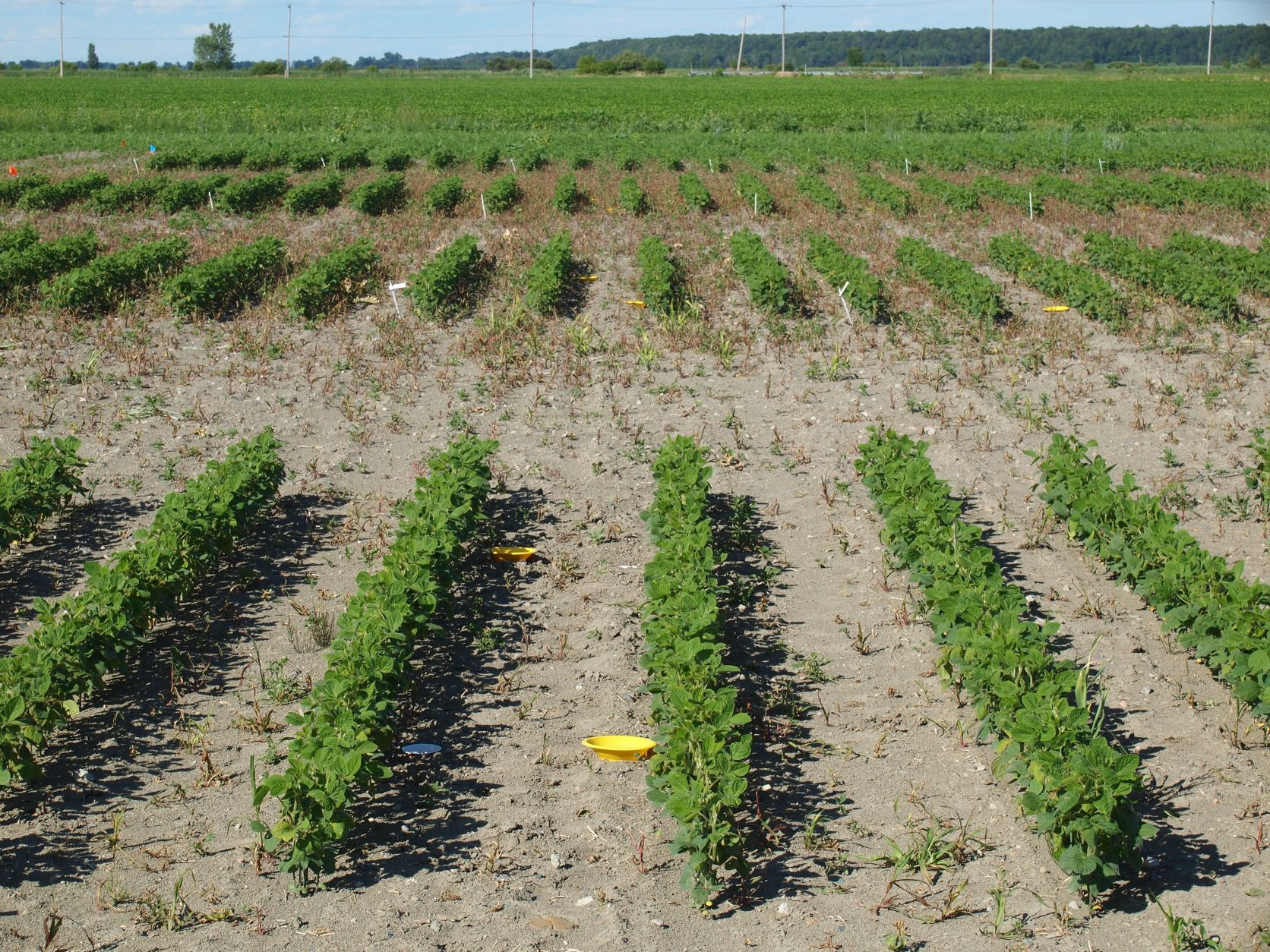We have published a new article in the journal PLOS ONE. This publication is the first one based on the research of doctoral student Élisée Emmanuel DABRÉ.

The use of beneficial microorganisms, such as arbuscular mycorrhizal fungi and plant growth promoting rhizobacteria as biofertilizers in agricultural systems, has gained particular interest in recent years due to their positive effects on plant growth and crop yield. While many studies have focused on the indirect effects of these inoculants on insects associated with plants in controlled and semi-controlled environments, very few field investigations have been done.
We carried out an inventory of phytophagous insects and their natural enemies in soybean fields inoculated with spores of the mycorrhizal fungus Rhizophagus irregularis, the rhizobial bacterium Bradyrhizobium japonicum, and a bacteria promoting plant growth, Bacillus pumilus.
We showed in this study that inoculants reduced the abundance of soybean aphid (Aphis glycines) only in the presence of potassium. We also noted a decrease in the number of leafhoppers in the presence of potassium alone, indicating its probable role in the nutrition of these insects. Finally, we detected a negative correlation between the rate of mycorrhizal colonization of the roots and the abundance of piercing-sucking insects. Given that such insects are major vectors of plant disease, it seems that increased mycorrhizal fungal colonization can help protect crop plants.
